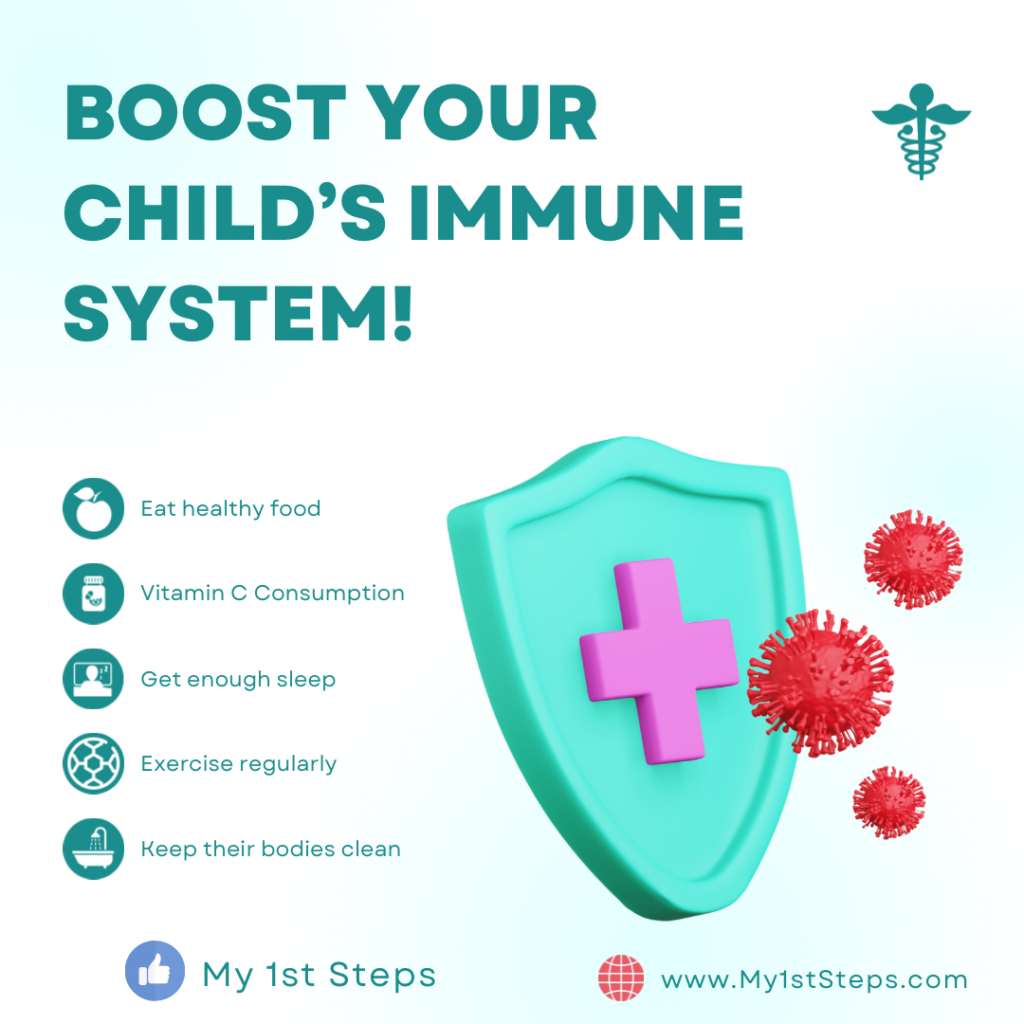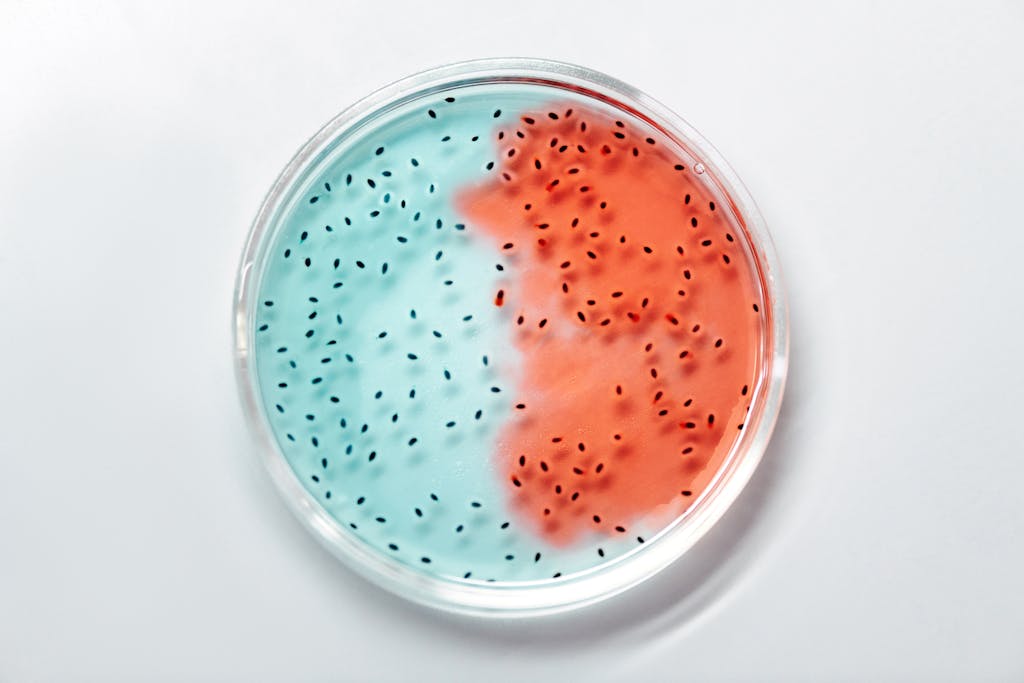Proven Ways to Boost Your Child’s Immune System Naturally

As I sit here sipping my coffee (let’s be honest, it’s probably lukewarm by now), I can’t help but think about how we’re all in this together – trying to raise happy, healthy kids in a world that sometimes feels like it’s conspiring against us.
One minute, little Timmy is bouncing off the walls, and the next, he’s down with yet another cold. Sound familiar?
Today, we’re diving into a topic that’s close to my heart and probably yours too: how to boost our children’s immune systems naturally.
As a mom of two energetic kiddos, I’ve been on this rollercoaster ride of sniffles, fevers, and mysterious rashes more times than I care to count.
But over the years, I’ve picked up some tricks of the trade that I’m excited to share with you.
In this article, we’ll explore everything from the power of nutrition to the magic of a good night’s sleep.
We’ll talk about how to make veggies appealing (yes, it’s possible!), why sometimes letting your kids get dirty is a good thing, and how to navigate the confusing world of supplements.
Don’t worry – I promise to keep things real, share some of my own fumbles along the way, and hopefully give you some practical tips you can start using today.
The Foundations of Childhood Immunity: What Every Parent Should Know

Our children’s immune systems are like tiny, complex armies, constantly on guard against invaders like bacteria and viruses. But here’s the kicker – these systems aren’t fully developed when our kids are born.
They need time, exposure to the world (yes, even the germy parts), and the right building blocks to grow strong.

Recent research has shown that factors like diet, sleep, stress, and even exposure to nature play crucial roles in developing a robust immune system.
Pro Tip: A child’s immune system is like a muscle – it needs to be exercised to grow stronger.
Supercharge Your Child’s Defenses: Immune-Boosting Foods and Nutrients

You’ve probably heard the saying, “You are what you eat.” Well, when it comes to our kids’ immune systems, this couldn’t be truer. The food we put on their plates plays a crucial role in building and maintaining a strong defense against illnesses.

Essential Nutrients and Immune-Boosting Foods:
1. Vitamin C: Found in citrus fruits, berries, and bell peppers. It helps stimulate the production and function of white blood cells.
2. Vitamin D: Often called the “sunshine vitamin,” it’s crucial for immune function. While our bodies can produce it from sunlight, foods like fatty fish, egg yolks, and fortified dairy products are good sources.
3. Zinc: Vital for the development of immune cells. You can find it in lean meats, beans, and nuts.
4. Probiotics: These beneficial bacteria support gut health, which is closely linked to immune function. Yogurt, kefir, and other fermented foods are great sources.

Balanced Diet Recommendations:
The key here is variety. Aim to include a rainbow of fruits and vegetables in your child’s diet. Each color represents different phytonutrients that support various aspects of health, including immunity.
Practical Tips:
1. Make smoothies: Blend fruits, leafy greens, and yogurt for a nutrient-packed treat.
2. Offer colorful snacks: Think carrot sticks, bell pepper slices, and berries.
3. Get them involved: Let kids help with meal planning and preparation. They’re more likely to eat what they’ve helped create.
4. Lead by example: If they see you enjoying a variety of healthy foods, they’re more likely to follow suit.
Remember, it’s okay if every meal isn’t perfect. We’re aiming for balance over time, not perfection at every sitting.
Rest and Play: The Dynamic Duo for a Robust Immune System

Ah, sleep. That elusive thing parents often dream about. But for our kids, it’s not just about giving us a few hours of peace – it’s crucial for their immune health.
Importance of Adequate Sleep:
During sleep, our bodies produce and release cytokines, a type of protein that helps fight infection and inflammation. Lack of sleep can decrease the production of these protective proteins.

Age-Appropriate Sleep Recommendations:
Infants (4-12 months): 12-16 hours per day (including naps)
Toddlers (1-2 years): 11-14 hours per day (including naps)
Preschoolers (3-5 years): 10-13 hours per day
School-age children (6-12 years): 9-12 hours per day
Teenagers (13-18 years): 8-10 hours per day
Practical Sleep Tips:
1. Establish a consistent bedtime routine
2. Create a sleep-friendly environment (dark, quiet, and cool)
3. Limit screen time before bed
4. Use white noise or soft music to help them relax

Exercise: The Often Overlooked Immune Booster
Regular physical activity can help flush bacteria out of the lungs and airways, reducing the chance of getting a cold, flu, or other illness. It can also stimulate the production of macrophages, the cells that attack bacteria.
Exercise Recommendations
Toddlers and preschoolers: At least 3 hours of active play throughout the day
Children and adolescents: At least 1 hour of moderate to vigorous activity daily

Practical Exercise Tips
1. Make it fun: Dance parties, obstacle courses, or nature scavenger hunts
2. Get the whole family involved: Family bike rides or after-dinner walks
3. Encourage outdoor play: Fresh air and sunshine are bonus immune boosters
Section 3: Stress Management and Mental Well-being

Our little ones face their own set of stressors, from school pressures to social dynamics, and even picking up on our stress as parents.
When we’re stressed, our bodies produce stress hormones like cortisol. In small doses, this isn’t a problem. But chronic stress can suppress the immune system, making us more susceptible to illness.

Techniques to Support Emotional Health:
1. Mindfulness and Meditation: There are great apps and videos designed to introduce children to simple mindfulness techniques.
2. Regular Check-ins: Create a safe space for your child to express their feelings. This could be a daily “rose and thorn” discussion at dinner, where everyone shares a highlight and a challenge from their day.
3. Physical Affection: Never underestimate the power of a hug. Physical touch can actually lower cortisol levels and boost oxytocin, the “feel-good” hormone.
4. Creative Outlets: Encourage activities like drawing, coloring, or journaling as ways to process emotions.
5. Nature Time: Time in nature has been shown to reduce stress and improve overall well-being.
Parent Hack
Create a “calm down corner” in your home. Stock it with things like stress balls, coloring books, or a mini zen garden. When emotions run high, this gives kids a safe space to decompress.
Section 4: Hygiene and Environmental Factors

Proper Hygiene Practices:
1. Handwashing: Teach your kids to wash their hands thoroughly with soap and water for at least 20 seconds.
2. Covering coughs and sneezes: The “vampire cough” (coughing into your elbow) is a great technique to teach kids.
3. Regular bathing: But don’t go overboard! Daily baths aren’t always necessary and can strip the skin of beneficial oils and bacteria.
4. Dental hygiene: Oral health is closely linked to overall health. Make brushing and flossing a non-negotiable part of the daily routine.

Creating a Healthy Home Environment:
1. Regular cleaning: Focus on high-touch areas like doorknobs, light switches, and remote controls.
2. Good ventilation: Open windows when weather permits to let fresh air circulate.
3. Use natural cleaning products when possible: This reduces exposure to harsh chemicals that can irritate airways.
4. Manage humidity: Use a humidifier in dry weather to keep nasal passages moist and better able to trap germs.

Importance of Outdoor Time and Vitamin D:
Sunlight exposure helps our bodies produce Vitamin D, which is crucial for immune function. Aim for 10-30 minutes of midday sunlight, several times per week. Just don’t forget the sunscreen for longer exposures!
Gut Guardians: Nurturing Your Child’s Internal Defense System

Did you know that about 70% of our immune system is located in our gut? Our digestive system is home to trillions of bacteria, both good and bad, that play a crucial role in our overall health, including our immune function.
Probiotics and Prebiotics for Children:
Probiotics are the “good” bacteria that help maintain a healthy balance in our gut. They can be found in fermented foods or taken as supplements. Prebiotics, on the other hand, are types of fiber that feed these good bacteria.

Probiotic-Rich Foods
Yogurt (look for “live and active cultures” on the label)
Kefir
Sauerkraut
Kimchi (if your kids are adventurous eaters!)
Prebiotic-Rich Foods
Bananas
Onions
Garlic
Whole grains

Practical Tips for Supporting Gut Health
1. Introduce fermented foods gradually: Start with small amounts and increase over time.
2. Make it fun: Let kids help make homemade yogurt or sauerkraut (with supervision, of course).
3. Lead by example: If they see you enjoying these foods, they’re more likely to try them.
4. Consider a probiotic supplement: Discuss with your pediatrician if this might be beneficial for your child.
Overcoming Immunity Hurdles: Smart Strategies for Common Childhood Challenges

Challenge 1: Picky Eating
Solution: Don’t give up! It can take up to 15-20 exposures for a child to accept a new food. Keep offering a variety of healthy options without pressure. Get creative with presentation – those cucumber slices might be more appealing if they’re arranged like a smiley face!
Challenge 2: Resistance to Sleep Routines
Solution: Consistency is key. Stick to your routine even when it’s tough. Consider using a visual schedule for younger children so they know what to expect.
Challenge 3: Too Much Screen Time
Solution: Set clear boundaries, but also provide engaging alternatives. Have a basket of special toys or activities that only come out during “no screen” times.
Challenge 4: Stress and Anxiety
Solution: Create open lines of communication. Let your child know it’s okay to feel worried sometimes, and teach them coping strategies like deep breathing or visualization techniques.
Your Immunity Questions Answered: Expert Insights for Concerned Parents

1. Can supplements boost my child’s immune system?
While a balanced diet is the best way to support immunity, some children may benefit from supplements. Always consult with your pediatrician before starting any supplement regimen.
2. How often should my child bathe?
It depends on their age and activity level. For most school-age children, 2-3 times a week is sufficient, unless they’re visibly dirty or sweaty.
3. Is it possible to “boost” immunity too much?
An overactive immune system can lead to allergies and autoimmune disorders. The goal is to support, not overstimulate, the immune system through healthy lifestyle choices.
Immune-Boosting Action Plan: Simple Steps for Everyday Protection

1. Prioritize a varied, colorful diet rich in fruits and vegetables
2. Ensure adequate sleep based on your child’s age
3. Encourage regular physical activity, preferably outdoors
4. Teach and model good hygiene practices
5. Create a low-stress environment and teach stress-management techniques
6. Support gut health through probiotic and prebiotic-rich foods
7. Stay consistent with healthy habits, but don’t stress about perfection
Final Thoughts: Strengthening Your Child’s Immune System the Natural Way

Remember, boosting your child’s immune system isn’t about quick fixes or magic pills. It’s about creating a lifestyle that supports overall health and well-being. Some days will be easier than others, and that’s okay. We’re all doing our best.
By focusing on nutrition, sleep, exercise, stress management, and creating a healthy environment, you’re giving your child’s immune system the best possible chance to thrive. And in the process, you might find that the whole family benefits from these healthy habits.
So, take a deep breath, give yourself a pat on the back, and remember – you’ve got this, super parent!
Before You Go
We’d love to hear your experiences! Have you tried any of these tips? Do you have any immune-boosting tricks of your own? Share your stories in the comments below, and don’t forget to follow us on Facebook for more parenting tips and tricks.
And if you found this article helpful, why not share it with other parents who might benefit? After all, we’re all in this together!


